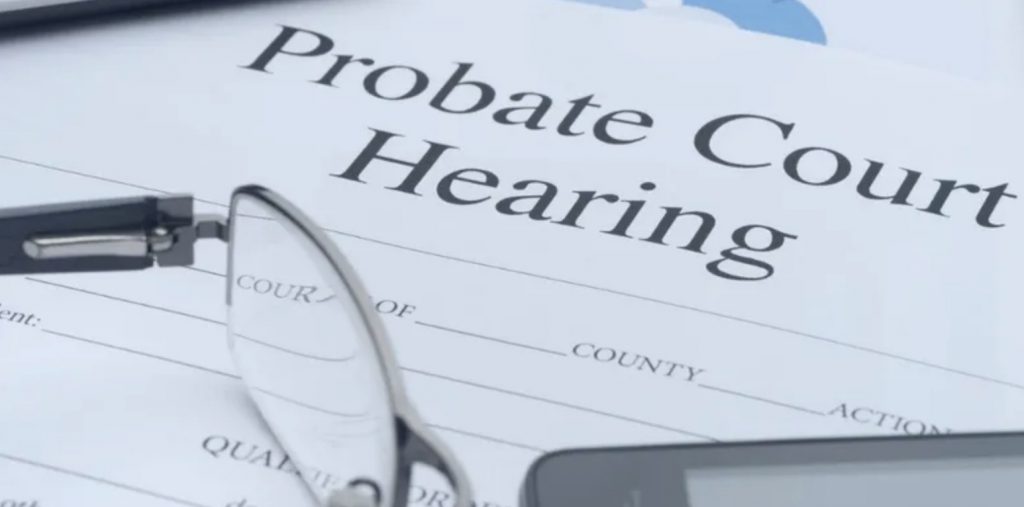At this time, we are not accepting any new probate clients until further notice. However, we will continue to work with our existing clients and their referrals on new probate matters. We apologize for any inconvenience this may cause, and thank you for your understanding.
Quick Links: Decedent Estates, Trusts, Guardianship, or Conservatorship
What Does Probate Mean?

Probate Court is a division of the Circuit Courts of the State of Michigan responsible for proceedings involving wills, trusts, estates, guardianships, conservatorships, divorce, child custody, child support, and mental health actions. The probate court is an essential part of the social safety net that helps to protect the health, safety, and individual rights of minors, the elderly, and other vulnerable individuals. A Jackson probate attorney can help you understand what your legal rights and duties are in probate court, so you can have the best chance of success with your probate court matter.
Decedent Estates

When a person dies, their personal rights and responsibilities that survive death become part of their probate "estate." The estate has the right to sue and be sued, and is represented by a "personal representative." Often if a person dies leaving assets, it is necessary to "probate," or administer the estate after death.
Probating a decedent estate involves the following steps:
- Determine whether the decedent died with a will (testate) or without a will (intestate).
- Determine whether the decedent had assets that require probate administration. Generally, a probate estate may be needed if the decedent died holding real estate, or if the value of the decedent's assets at death exceeded $24,000 after homestead exemption, family allowance, exempt personal property, burial costs and costs of last illness, and costs of estate administration.
- Determine who the decedent's heirs, devisees, and other interested persons in the estate are, file papers to open probate, and give the interested persons notice of the probate proceeding.
- Obtain a tax ID for the estate from the IRS, and open an estate bank account.
- Transfer money from the decedent's personal accounts to the estate account.
- Secure and take control of all estate assets.
- Give notice to creditors of the estate.
- Prepare an inventory of estate property, and pay the inventory fee to the probate court.
- Liquidate estate assets to cash as needed to pay homestead exemption, family allowance, exempt personal property allowance, burial costs and costs of last illness, costs of estate administration, and valid creditor claims.
- Pay legally enforceable creditor claims, and disallow legally unenforceable creditor claims.
- Arrange for filing of the decedent's final income tax return and estate income tax return, if applicable.
- Prepare an accounting of the estate.
- Distribute the estate property to heirs and devisees, as their interests may appear.
- File papers to close the estate with the probate court.
In summary: a Jackson probate attorney can give you personalized advice on how to understand your decedent estate, and how best to be successful in administering the estate.
Trusts

A trust is a conveyancing document where one person (i.e., a settlor) gives legal ownership of property to another person (i.e., a trustee), with instructions to hold the property for the benefit of one or more people (i.e., beneficiaries).
I can assist with the administration of trusts, including appointment, supervision, or removal of a trustee; actions for accountings and information to be provided to interested persons; actions to construe trust provisions; actions to approve settlements and distributions; and other actions necessary to administer a trust under its terms.
Guardianship

A guardianship is a legal procedure to appoint a legally-responsible person (the "guardian") to make physical care and custody decisions on behalf of a person who is completely incapable of taking care of him or herself, whether due to a person's age, chronic alcohol or drug intoxication, physical or mental infirmity, or some other reason. A court cannot appoint a guardian unless it finds by clear and convincing evidence that the person is not competent to care for themselves, and appointment of a guardian is necessary for the person's protection.
Conservatorship

A conservatorship is a legal procedure to appoint a legally-responsible person (the "conservator") to make financial and property decisions on behalf of a person who needs assistance in taking care of his or her property, without which assistance the person's income and assets would be dissipated or wasted. A conservatorship can be imposed due to a person's age, chronic alcohol or drug intoxication, physical or mental infirmity, or some other reason, or simply because the person desires the help. There is no need for a court to find a person incompetent to have a conservatorship. A court can appoint a conservator if it finds by clear and convincing evidence that the person has income or assets, and these would be wasted or dissipated if a conservator is not appointed.
